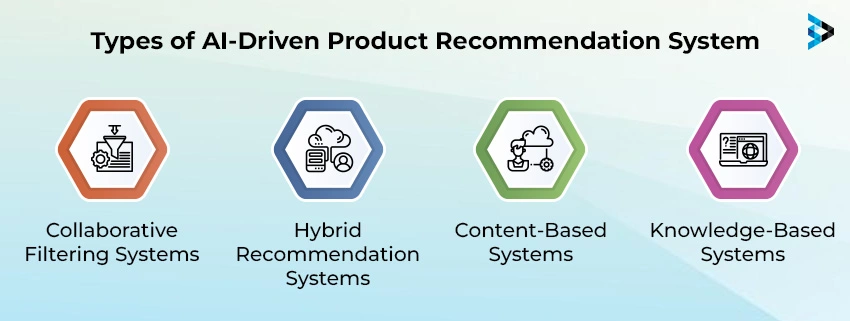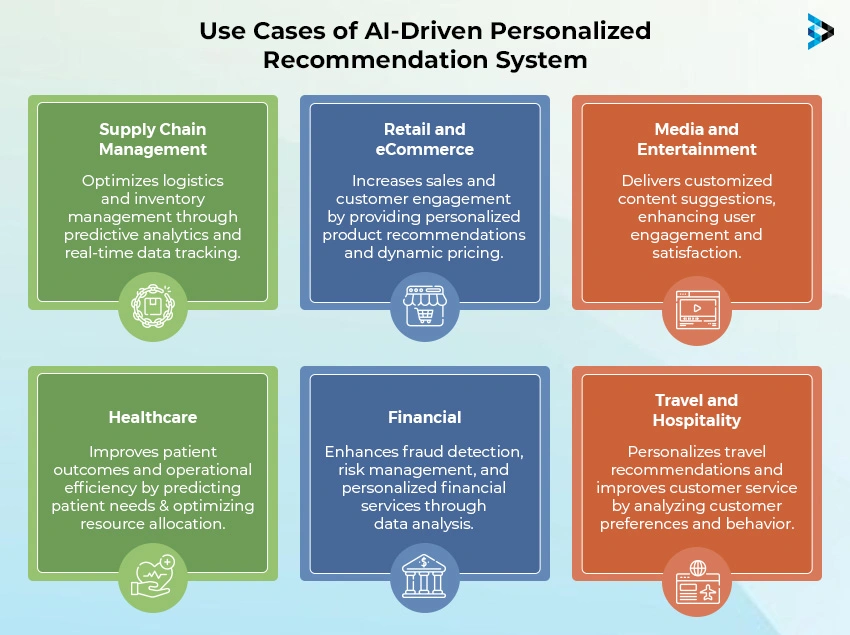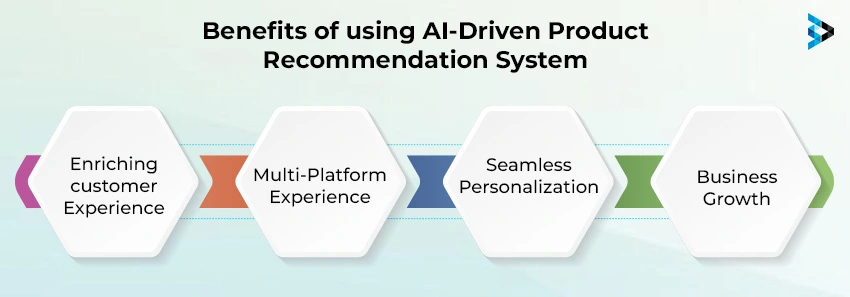A 21st-century customer craves a personalized shopping experience that makes them feel included and validates their preferences. Meeting consumer expectations for any e-commerce brand takes work, especially in a fast-paced environment.
The Internet transcends boundaries, cultures, and even time. With an array of products and services available to choose from, consumers now face what is called an oversaturation of choices. Excess choices lead to confusion, which further blurs the customer’s buying decision.
Customers face enormous challenges, such as sorting through countless options, making shopping overwhelming rather than a pleasurable getaway. Imagine, on a cozy weekend, you are scrolling through an online store (of which there are countless) and being bombarded with products you have already purchased or those that don’t match your preferences.
Therefore, to combat this situation, online stores are devising solutions to sell more products by showcasing them based on customers’ personal preferences. These stores are leveraging the benefits of personalized product recommendations, which utilize advanced artificial intelligence algorithms to provide users with such recommendations based on several factors.
Personalized product recommendations are valuable not just for online stores but also for customers. They save them time, effort, and money, as the suggestions are more likely to be based on users’ personal preferences. A customer with a great shopping experience is likelier to buy products from that brand again.
Are you considering incorporating an AI-powered product recommendation system into your online store? Let us help you understand the intricacies of AI-powered personalization and help you increase customer engagement and loyalty.
What is an AI-powered recommendation system?
Understand that an AI-powered recommendation tool is nothing more than an algorithm that ranks products or users based on the ratings they might give to a particular product. Many giant corporations use an AI-powered recommendation platform to provide a personalized experience to their loyal customer base.
For instance, a music service provider may recommend a song that is consistent with the genre of the songs you have listened to so far. An online retail giant may recommend products similar to the ones you have purchased or viewed previously.
There are multiple ways to build a personalized recommendation system, which can differ from algorithmic and formulaic to modeling-centric. They leverage factors such as page rank, link prediction, collaborative filtering, and content-based.

The Role of Generative AI in Personalized Product Recommendations
Generative AI is an emerging technology that leverages the potency of machine learning algorithms to generate new data sets from an existing dataset. It has created a personalized product recommendation system that considers customer preference, purchase history, and browsing patterns.
From patterns to trends, generative AI has the potential to analyze and consider a vast amount of data, allowing online stores to create a system that targets customers with specialized marketing strategies.
Real-World Examples of Generative AI in Action
- Amazon:
Amazon uses generative AI to enhance its users’ shopping experiences by analyzing customer data, preferences, search history, and more. Amazon has garnered an unfathomable amount of success with its product recommendation and hyper-personalization features.
- Wayfair:
Wayfair has a robust product recommendation feature based on the scans and analysis of images uploaded by clients. The system provides more personalized recommendations based on previous image analysis.
- ASOS
ASOS offers personalized styling recommendations by utilizing the potential of generative AI to create virtual style offers. They have created an advanced feature that analyzes the user’s body type and offers style recommendations.

Types of AI-Driven Product Recommendation System:
- Collaborative Filtering Systems
Collaborative filtering predicts user interests based on data patterns from many users, using memory-based (user/item-based) or model-based (machine learning) approaches. It’s easy to implement and effective without needing knowledge of item content. Examples include YouTube’s and Coursera’s recommendations.
- Content-Based Systems
Content-based systems generate recommendations by matching user preferences to item attributes, focusing on ratings the user provides. They work well with limited rating data. Examples include Amazon’s product feed and Spotify’s music suggestions.
- Hybrid Recommendation Systems
Hybrid systems combine multiple recommendation methods to enhance accuracy and personalization. They can operate in parallel or sequentially. Netflix uses a hybrid approach to improve movie recommendations, blending collaborative and content-based filtering.
- Knowledge-Based Systems
Knowledge-based systems use rules and domain expertise to make recommendations independent of user history. They provide clear explanations and work well for complex domains with infrequent purchases, avoiding cold-start issues.

Use Cases of AI-Driven Personalized Recommendation System:
Supply Chain Management
AI-driven product personalization is essential when managing the supply chain, optimizing inventory, and eliminating waste. It accurately predicts demand by taking historical inventory and sales data into account. Accordingly, it suggests supply chain management strategies. Real-time data allows companies to adjust recommendations based on demand changes and supplier performance. This saves money, enhances efficiency, and reduces environmental impact by minimizing waste and optimizing inventory management.
Retail and e-commerce
AI-enabled personalized recommendation solutions employ sophisticated algorithms to scrutinize extensive customer data, such as browsing and purchase history, preferences, and behavior. These systems harness AI to uncover complex patterns and trends, creating highly tailored product suggestions. Incorporating AI into product recommendations boosts customer satisfaction and drives sales by aligning items with users’ specific tastes and needs. The continuous learning and adaptation of AI algorithms further enhance recommendations over time, providing a dynamic and efficient system that optimizes the shopping experience.
Media and entertainment
Imagine getting tailored movie recommendations and suggestions based on what you currently want to watch. An AI-driven recommendation system does just that based on several insights and data. It analyzes a user’s viewing and browsing habits, preferences, and history to provide personalized recommendations for their taste. This algorithm is innovative enough to detect patterns, behavior, and mood from the available date to predict what you will watch next. This machine learning technology is constantly evolving and on the radar to understand your preferences, ensuring an accurate and preferential recommendation so you don’t have to go through all the hustle of identifying a night’s watchlist.
Healthcare
AI-powered recommendation systems utilize patient data, such as medical history and symptoms, to offer personalized treatment and medication suggestions. By detecting patterns and trends in diverse datasets, these systems improve the accuracy of medical recommendations, leading to better patient outcomes. This tailored approach aligns treatments with individual profiles and can help reduce healthcare costs by preventing unnecessary procedures or prescriptions. Continuous learning keeps these systems updated with the latest medical knowledge, allowing them to adapt to changing patient conditions. Consequently, AI-powered recommendations in healthcare enhance patient care effectiveness and efficiency, promoting better health outcomes and optimizing resource use in the healthcare sector.
Financial:
AI-powered recommendation systems utilize customer data, such as financial history, behavior, and preferences, to offer personalized financial product suggestions. By employing advanced algorithms, these systems identify patterns and trends in a customer’s economic history, allowing them to generate customized recommendations. This method enhances customer satisfaction by aligning products with individual needs and serves as a strategic tool for financial institutions to increase revenue. Additionally, the continuous learning capabilities of AI algorithms refine recommendations over time, ensuring they remain relevant to changing customer preferences and market trends.
Travel and hospitality
AI-driven recommendation systems are crucial in suggesting hotels, flights, and other travel services based on user preferences, behavior, and budget. By thoroughly analyzing customer data, these systems identify patterns and trends in travel history, enabling them to deliver highly personalized recommendations. This tailored approach enhances user satisfaction by aligning with individual preferences and is a strategic tool to increase revenue for travel businesses. Furthermore, the continuous learning capabilities of AI algorithms ensure that recommendations are constantly refined, keeping them in sync with evolving customer preferences and market dynamics.

Benefits of using AI-Driven Product Recommendation System:
Enriching customer Experience
Imagine an experience where all your expectations are being met with a tailored feature that understands your preferences and buying habits like no other. Companies deliver that by leveraging AI-driven product recommendation systems’ imaginative yet practical power. Providing a personalized experience to customers gives companies a competitive edge. It inspires trust, loyalty, and a sense of belonging in the hearts and minds of customers.
While visiting a store to buy any kind of product, a customer looks forward to purchasing a perfect product that matches his needs and expectations. No matter how clear he is about the product, a user will face confusion while selecting a product from an overload of choices.
Therefore, a recommendation system will effectively enrich the user experience by leveraging user data, behavior, and preferences.
Multi-Platform Experience
A company following multi-channel communication with customers will always hold their attention. A clothing store that advertises its products on multiple channels, including social media, websites, and apps. It ensures consistency and enters consumers’ subconscious, creating a lasting brand recall.
An AI-driven product recommendation system will smartly leverage the user’s data across different platforms to showcase personalized recommendations that will compel them to purchase.
Seamless Personalization
The Internet has become an oversaturated marketplace, a place where our senses are overloaded with multiple choices, which creates confusion and leads to frustration. Enhancing customer experience by showing relevant content will create a personalized user experience. Moreover, latest eCommerce personalization stats shows that brands who prioritize personalization see increased conversions and loyalty. Customers will feel a sense of belonging, where they are heard and cared for.
Meeting user expectations is the key to creating a loyal consumer base. By leveraging a personalized recommendation system, a company can analyze customer behavior and preferences, thereby increasing the chances of meeting user expectations.
Business Growth
Your ultimate goal as a business owner is to increase sales and revenue. By leveraging the benefits of an AI-powered product recommendation system, companies can target customers with a tailored, personalized approach based on their behavior and preferences.
Implementing a robust system can increase a business’s growth and revenue. Integrating a recommendation system into a business is a seamless process.
Conclusion
We live in a hyper-changing environment where the business landscape faces fierce competition. Therefore, every company must discover a competitive edge to set them apart. One way to do this is by harnessing the power of a personalized AI-powered product recommendation system that will drive business growth and provide value to customers.
An AI-driven recommendation system, trained with advanced machine learning algorithms, will be agile enough to detect user preferences and behavior changes. The system will update accordingly and prioritize quality. Companies leveraging this system will grow business and acquire consumer trust and a loyal user base.
FAQ
Generative AI enhances personalized product recommendations by analyzing customer data to generate tailored suggestions based on preferences.
Real-world examples include Amazon’s product recommendations and Spotify’s music suggestions powered by generative AI algorithms.
Personalized recommendations improve customer satisfaction, boost sales, and foster long-term loyalty.
Challenges include data quality, algorithm complexity, relevance maintenance, data
privacy, and ensuring ethical AI practices.
Generative AI analyzes customer data, including purchase history and browsing patterns, to identify trends and generate personalized recommendations.
Machine learning algorithms analyze customer behavior to identify patterns and generate recommendations aligned with individual preferences.
Ethical considerations include ensuring fairness, transparency, and accountability in AI recommendations and mitigating biases in data and algorithms.
Related Articles
-
Generative Models Unpacked: The Innovations Powering Next-Gen AI
Envision a future where your business can rapidly produce everything it requires, whether it’s marketing strategies, tailored images, or code, within mere hours. This efficiency could revolutionize your operations. In
-
Top AI-driven Image Generation and Editing Tools
AI-driven image generation and editing tools have revolutionized the creative industry by allowing users to create, modify, and enhance images easily. These platforms harness the power of artificial intelligence to
-
The Role of AI-Driven Plugins in WordPress to Enhance User Experience
In the dynamic world of website development using artificial intelligence driven for plugin has emerged as a revolutionary force in the wordpress ecosystem. These intelligent plugins are changing the user




